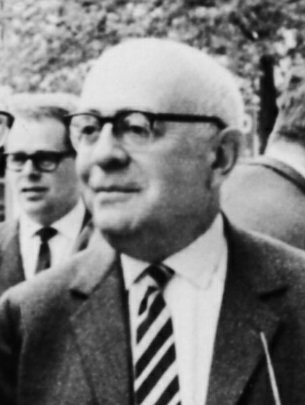
(photo credits)
Theodor Adorno was a German philosopher, sociologist, and musicologist who made significant contributions to the Frankfurt School of Critical Theory. His views on art in relation to society were deeply rooted in Marxist philosophy, and he believed that the social and economic conditions of a society played a significant role in shaping the production and reception of art.
According to Adorno, art in capitalist societies is commodified and turned into a product to be consumed by the masses. The production of art is driven by the market forces, and the artists are forced to conform to the taste of the consumers. This results in a standardization of art and a loss of its critical and transformative potential.
Adorno also believed that the consumers of art in capitalist societies were conditioned to passively accept the dominant culture and ideology. The entertainment industry and the media manipulate the taste and desires of the masses, creating a false consciousness that perpetuates the status quo.
In response to this, Adorno argued that art had a critical role to play in challenging the dominant culture and ideology. He believed that the artwork should be a site of resistance, a space for critical reflection and dissent. The artist should not conform to the demands of the market, but instead, create works that challenge the dominant culture and provoke critical thought.
One of Adorno’s most famous works, “The Culture Industry: Enlightenment as Mass Deception,” is a scathing critique of the culture industry and its effects on society. He argued that the culture industry produced a false sense of happiness and fulfillment, distracting people from the harsh realities of their lives.
Adorno’s views on art in relation to society have been influential in shaping critical theory and cultural studies. His ideas have been used to analyze the cultural products of capitalist societies, including popular music, television, and film.
Key Learnings
- Theodor Adorno’s views on art in relation to society emphasize the role of social and economic conditions in shaping the production and reception of art.
- He believed that art in capitalist societies had become commodified and standardized, and that the culture industry perpetuated a false consciousness that reinforced the status quo.
- Adorno’s work highlights the importance of critical reflection and resistance in the creation and appreciation of art.
Leave a Reply